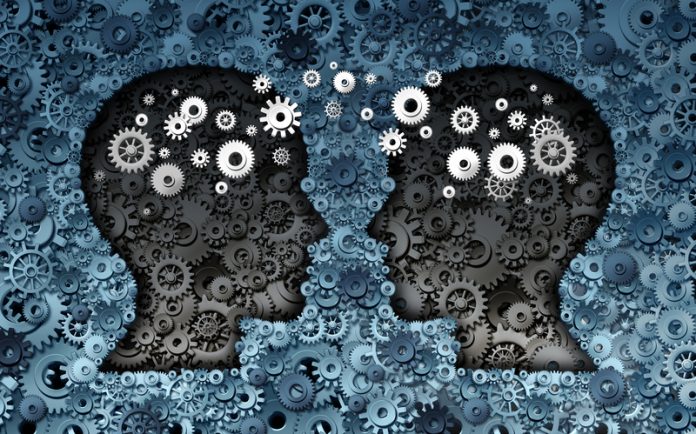Dr Arthur Lupia, Assistant Director, Directorate for Social, Behavioral, and Economic Sciences (SBE) at the National Science Foundation (NSF) in the U.S. provides a compelling glimpse into how supporting social and behavioural science improves the quality of life
Today, the social and behavioural sciences focus on the United States’ most critical issues. Through dynamic collaborations with one another, and with other scientists, social and behavioural scientists are pursuing many new approaches to our nation’s largest challenges and opportunities. Through vast networks of relationships with public and private sector actors, social and behavioural science insights are increasing the effectiveness of the public sector, the efficiency of the private sector, and quality of life for millions of people throughout the world.
To see how these effects are happening, consider the context of safety, security, and preparedness. Think about soldiers on a field of battle. Think about first responders in a city whose infrastructure is unexpectedly compromised. Think about a new mother whose automated vehicle is going a bit too fast towards a crowd of unsuspecting people. Each is in a time of crisis.
Critical infrastructure and technology will be built for these moments. Will humans react as planners expect? Will prior instructions be comprehensible? What do we know about the neural and behavioural underpinnings of these split-second reactions?
We know that neuroscience has made great strides in understanding the brain. We know that other scholars have supported important discoveries about human decision making. Yet the gap between what we know about brains and what we know about behaviour is often too wide to apply to split-second decisions. While electroencephalography (EEG) and functional magnetic resonance imaging (fMRI) allow us to infer certain types of neural activity, helping the soldier, the first responder, and the mother requires neural observations that are more closely linked to behaviour – observations that are beyond our current ability.
Closing the brain-behaviour gap
Today, the National Science Foundation’s Social, Behavioral, and Economic Sciences Directorate (SBE) is helping to close the brain-behaviour gap. On the brain side, we know that the neuromodulators that influence attentional control are different from the neuromodulators that affect other functions. Today, we lack non-invasive means of recording and understanding these differences. Change is coming.
SBE-supported scholars are using an evolving process called resting-state fMRI to link increasingly complex forms of brain activity to performance on split-second tasks. Understanding these linkages gives us great potential to improve performance in many cognitive domains.
This is exciting. Now think about what these discoveries can teach us when combined with new work using single-neuron recording in behavioural contexts.
SBE-supported researchers are recording how single neurons change during memory encoding and memory retrieval. A recent finding from this work clarifies why people can be confident even when their memories are wrong. This work identifies two different neuron populations in the parietal cortex. One neuron population signals whether an item is familiar or unfamiliar. Another population reflects people’s confidence in their judgments. At moments of overconfidence, the two neural networks send very different signals about the likely consequences of a decision. The “confidence green light” overwhelms the “reality red light.” We are on the verge of learning a lot more about when this type of cognitive conflict occurs.
When we combine new abilities to observe neuromodulators with gains in single neuron recording, brain-behaviour gaps become smaller. When the gaps become smaller, planners, engineers, and programmers can more effectively anticipate split-second reactions. They can use this information to better tailor technology to the needs of soldiers, first responders, parents and other important decision makers. With these changes, transformative advances in safety, security and preparedness are more likely.
Tackling many formidable problems
SBE-funded researchers are tackling so many formidable problems, from the origins of violent extremism to effective ways to mitigate the opioid epidemic; from examining how babies acquire language to clarifying how reading teachers can detect learning impediments. Social and behavioural sciences are also examining how the perception of risk affects decision making in contexts ranging from personal finance to extreme weather. SBE-funded research into human movement has assisted in the development of prosthetics that enable people with disabilities to live independent and full lives. In the same spirit, our agency also supported the basic research on page-rank algorithms that produced search engines like Google.
The world is undergoing rapid change, and SBE-funded research is examining how our citizens and nation can adapt to a fast-changing world. Current research emphases include:
- How women and men returning from military service are transitioning back to civilian life.
- What opportunities and challenges face workers, and others who want to work, when employment landscapes and requirements for new kinds of work are changing at unprecedented speed.
SBE-funded research is examining the effects of these changes on jobs and ways of life for communities, the United States, and the world.
SBE-funded researchers also work with the public sector to improve the delivery and effectiveness of critical public services. For example, although advances in weather forecasting increased the window of time for people to seek safety from life-threatening storms, many people were not listening to government generated warnings. The National Weather Service and other parts of the National Oceanic and Atmospheric Administration worked with SBE-funded researchers to improve how this critical information is conveyed to the people who need it.
SBE-funded scientists are tackling many of today’s most important questions. Their answers are helping us improve our security, bolster our economy, and advance the progress of science. While there are so many ways to measure the impact of this work, one easy measure is the fact that NSF-supported researchers have won 57 Nobel prizes in economics – more than two-thirds of all such prizes. In fact, NSF has supported every economics Nobelist since 1997.
It is an exciting time for the social, behavioural, and economic sciences, and SBE is grateful for the opportunity to work with so many talented researchers, institutions, and citizens whose work improves quality of life for so many.
Dr Arthur Lupia
Assistant Director
Directorate for Social, Behavioral, and Economic Sciences (SBE)
at the National Science Foundation (NSF)
Tel: +1 (703) 292 9803











